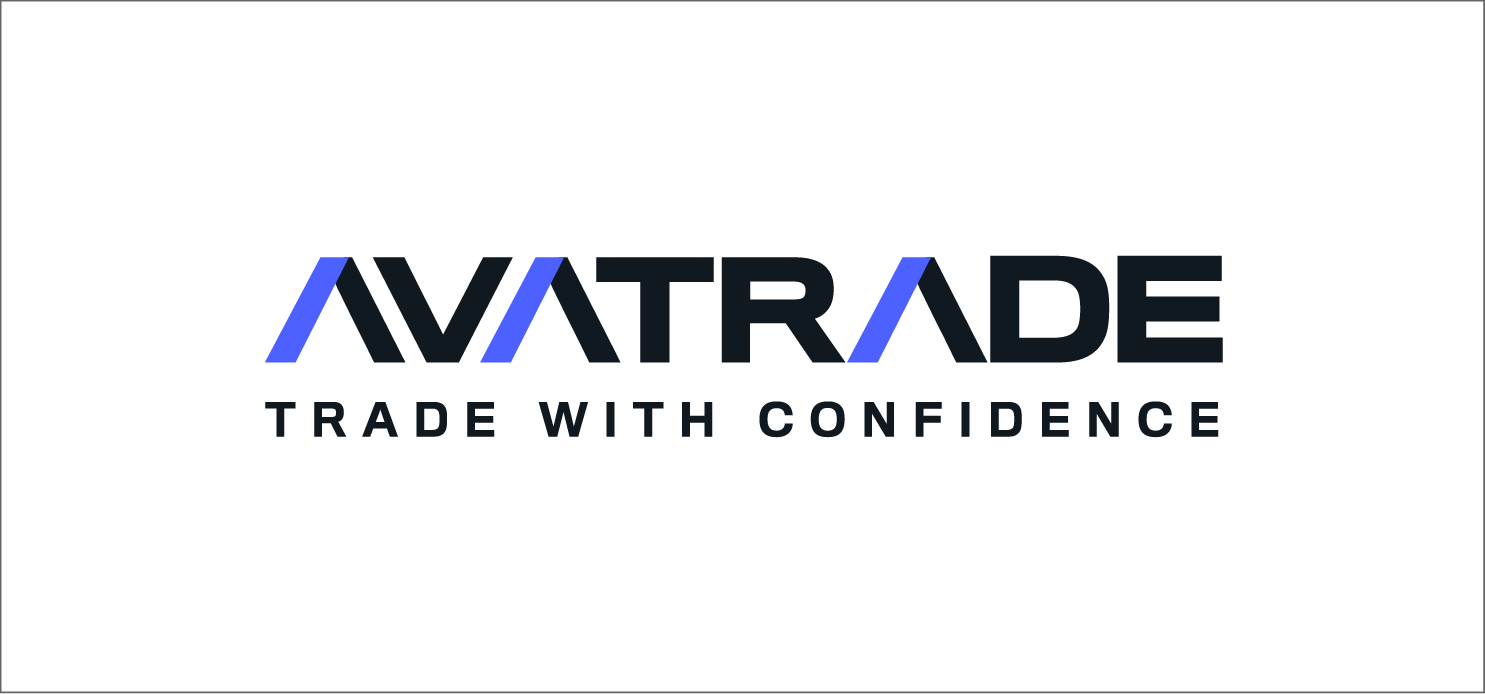Best Trading Platforms in Nigeria for 2025
All products and services featured are independently selected by WikiJob. When you register or purchase through links on this page, we may earn a commission.
- A List of the Top Trading Platforms in Nigeria for January 2025:
- Comparison Chart of the Best Trading Platforms in Nigeria for January 2025
- Description of the Best Trading Platforms in Nigeria for January 2025
- What Is a Trading Platform?
- Key Points to Remember When Choosing a Trading Platform
empty
empty
empty
empty
empty
empty
empty
empty
- Frequently Asked Questions
- Final Thoughts
If you want to start trading in Nigeria, you need to be sure that you are looking at legitimate investment platforms in Nigeria or stock trading platforms for Nigerians, even if they are based outside the country.
There is a lot of choice available online when it comes to choosing the best online trading platform in Nigeria, and for many beginner traders the choice can be overwhelming – so this article looks at some of the options that are available for Nigerian traders, as well as some of the criteria that you should consider using when you are choosing the right place to trade.
The best stock trading brokers in Nigeria might not always be the cheapest, and you should always be looking for those that are regulated and considered safe, as well as providing the right trading instruments for you.
A List of the Top Trading Platforms in Nigeria for January 2025:
Comparison Chart of the Best Trading Platforms in Nigeria for January 2025
Regulation FCA, CySEC | Trading Platforms xStation, MT4 | Minimum Deposit $0 | |||
Regulation ASIC, FSCA, Central Bank | Trading Platforms MT4, MT5, AvaTradeGO | Minimum Deposit $100 | |||
Regulation FCA, ASIC, CFTC, NFA | Trading Platforms IG Web Platform, MT4, L2 Dealer | Minimum Deposit $250 | |||
Platform Saxo | Regulation FSA, ASIC, FCA, others | Trading Platforms SaxoTraderGO, SaxoTraderPRO, MT4 | Minimum Deposit $10,000 | ||
Platform Olymp Trade | Regulation FinaCom | Trading Platforms Web Platform, Mobile App | Minimum Deposit $10 | ||
Platform Forextime | Regulation FSCA, CySEC, FCA, others | Trading Platforms MT4, MT5, FXTM Trader | Minimum Deposit $10 |
Spread bets and CFDs are complex instruments and come with a high risk of losing money rapidly due to leverage. 69% of IG retail investor accounts lose money when trading spread bets and CFDs with IG. You should consider whether you understand how spread bets and CFDs work, and whether you can afford to take the high risk of losing your money.
Description of the Best Trading Platforms in Nigeria for January 2025
There are potentially thousands of options for trading platforms and brokers available online, but not every platform is available in every country or location.
The below trading platforms and brokers allow account opening for traders in Nigeria.
1. XTB
Pros
- Regulated by the FCA
- Low forex fees
- Fast withdrawal and deposit with no fee
- Live chat customer service
Cons
- Limited product portfolio
- High fees for stock CFDs
XTB is a global forex and CFD trading broker that offers a wide range of trading instruments and competitive pricing.
The company is regulated by multiple financial authorities, including the Central Bank of Ireland (CBI) and the Financial Conduct Authority (FCA) in the UK.
Here are some of the benefits of using XTB:
- Access to a wide range of trading instruments
- Competitive pricing
- Advanced charting tools
- Real-time market data
- Risk management tools
- Demo trading account
- 24/5 customer support
XTB is a good option for Nigerian traders who are:
- Looking for a regulated broker
- Experienced traders
- Have a moderate to high risk tolerance
- Interested in trading forex, stocks, indices, commodities, and cryptocurrencies
CFDs are complex instruments and come with a high risk of losing money rapidly due to leverage. 76% of retail investor accounts lose money when trading CFDs with this provider. You should consider whether you understand how CFDs work and whether you can afford to take the high risk of losing your money.
2. AvaTrade
Pros
- Worldwide regulated
- Multiple platforms – MT4, MT5, etc.
- Negative balance protection
- 20% welcome bonus
- Educational content
- Wide rage of payments methods
- Fixed spreads
Cons
- You can’t buy stocks
- Quarterly and annual inactivity fees
- Custumer support is not available 24/7
- No bonus for EU based clients
- No US clients accepted
- Imitated crypto assets
AvaTrade is a global forex and CFD trading broker that offers its services to clients in Nigeria.
The company is regulated by multiple financial authorities, including the Central Bank of Ireland (CBI) and the Financial Conduct Authority (FCA) in the UK.
AvaTrade provides Nigerian traders with access to a wide range of trading instruments, including:
- Forex: Over 55 currency pairs, including major, minor, and exotic pairs.
- Stocks: Thousands of stocks from around the world, including US, UK, and European stocks.
- Indices: Major global indices, such as the S&P 500, Dow Jones, Nasdaq, and FTSE 100.
- Commodities: A variety of commodities, including gold, silver, oil, and natural gas.
- Cryptocurrencies: Major cryptocurrencies, such as Bitcoin, Ethereum, and Litecoin.
AvaTrade is a good option for Nigerian traders who are looking for a regulated broker with a wide range of trading instruments and competitive pricing. The company also offers a number of other benefits, such as advanced charting tools, real-time market data, risk management tools, and demo trading accounts.
However, it is important to note that trading CFDs is a high-risk activity and you could lose all of your money if you are not careful. It is important to make sure that you understand the risks of trading CFDs before you start trading.
3. IG
Pros
- Highly regulated
- MetaTrader 4 (MT4)
- Over 10,000 instruments
- Available in the UK and US
- 24/7 customer support
Cons
- High fees
- No deposit compensation scheme for US accounts
- No copy trading
- Inactivity fees
IG, the world’s leading online trading provider with more traders trusting them with their money than anyone else, is authorized and regulated by the FCA and provides traders in Nigeria access to over 18,000 markets.
IG offers more 24-hour indices than any other provider, and extended hours on over 70 key US stocks.
For those who prefer to own the underlying asset, IG offers access to over 13,000 global shares and ETFs, or a wealth portfolio managed by one of their experts.
Benefits of Using IG in Nigeria:
- Advanced platform and charting: L2 dealer, ProRealTime, and MT4
- Demo account: Practice trading without risking real money
- Extended trading hours: Trade longer hours than with other brokers
- Extensive range of products: Trade forex, stocks, indices, commodities, and cryptocurrencies
- Daily expert analysis & educational resources: Stay informed and learn new trading strategies
- Round-the-clock customer service: Get help whenever you need it
- Negative balance protection for retail clients: Protect your capital from losses
IG is a Good Option for Nigerian Traders Who:
- Are looking for a regulated and reliable broker
- Are experienced traders with a moderate to high risk tolerance
- Are interested in trading a wide range of markets
4. Saxo
Pros
- Heavily regulated
- Good product portfolio
- Low forex fees
- No withdrawal fee
Cons
- Does not accept US clients
- High fees for options, futures and bonds
Saxo, a Danish investment bank founded in 1992, has established itself as a premier destination for Nigerian traders seeking a comprehensive and well-designed trading platform.
Regulated by the Danish Financial Services Authority and the FCA, Saxo offers a diverse range of trading instruments, a robust proprietary platform, and a dedicated customer support team.
Catering to the diverse trading preferences of Nigerian traders, Saxo provides access to an extensive array of trading instruments, encompassing stocks, ETFs, currency pairs, bonds, options, futures, and CFDs.
With over 28 stock markets, 3,100 ETFs, 182 currency pairs, and 23 options markets available, traders can effectively navigate the global financial markets.
Saxo's proprietary platform, SaxoTraderGo, is designed with both novice and experienced traders in mind. Its modern interface and seamless integration across web, desktop, and mobile platforms ensure a convenient and user-friendly trading experience.
The platform offers extensive customization options, allowing traders to tailor the interface to their specific trading styles and preferences.
SaxoTraderGo empowers Nigerian traders with a wide range of order types, including time-based orders, catering to both short-term and long-term trading strategies.
The platform also provides advanced features such as charting tools, technical indicators, and real-time market data, enabling traders to make informed trading decisions.
Saxo provides Nigerian traders with comprehensive research and analysis, empowering them to stay abreast of market trends and make informed trading decisions.
The platform offers in-house and third-party research, including trading ideas, recommendations, and detailed fundamental data. Additionally, daily podcasts, a news feed, and an economic calendar keep traders updated on the latest market developments.
Saxo is committed to providing Nigerian traders with exceptional customer support. While live chat is not currently available, traders can reach customer support representatives via phone or email.
The support team is knowledgeable and responsive, ensuring that traders have access to the assistance they need whenever they need it.
5. Olymp Trade
Pros
- Low minimum deposit
- Free deposits and withdrawals
- Good educational resources and trading tools
- 24/7 customer service
- User-friendly interface
- Demo account
Cons
- Inactivity fee
- Limited regulation
Founded in 2014, Olymp Trade is a relatively new trading platform but has gained significant popularity, boasting over 25 million users worldwide.
Nigerian traders seeking a user-friendly and accessible platform for trading stocks, commodities, forex, cryptocurrencies, and ETFs can find a reliable partner in Olymp Trade.
Olymp Trade caters to a broad range of Nigerian traders with its low minimum deposit of $10, making it an attractive option for both beginners and experienced traders alike.
Additionally, all deposits and withdrawals are free, regardless of the chosen method, whether it be bank transfer, cards, or e-wallets.
Based in St. Vincent and the Grenadines, Olymp Trade is regulated by the International Financial Commission (IFC), ensuring a secure and transparent trading environment for Nigerian traders.
The platform's commitment to protecting user funds is further evidenced by the absence of deposit or withdrawal fees.
Olymp Trade's trading platform is designed with both novice and experienced traders in mind.
Its straightforward interface and seamless user experience across web, mobile, and desktop platforms make it easy to navigate and execute trades. Traders can also customize the interface to suit their individual preferences and trading styles.
Olymp Trade empowers Nigerian traders with a range of order types, catering to both short-term and long-term trading strategies.
The platform also provides advanced features such as charting tools, technical indicators, and real-time market data, enabling traders to make informed trading decisions.
Olymp Trade recognizes the importance of equipping traders with the knowledge and skills they need to succeed in the financial markets.
The platform provides a wealth of educational resources, including a comprehensive Learn How to Trade in 30 Minutes course, articles, tutorials, and videos, all categorized for easy access.
Olymp Trade offers Nigerian traders in-depth research and analysis, empowering them to stay informed about market trends and make informed trading decisions. The platform provides in-house and third-party research, including forecasts, technical analytics, and a blog with valuable insights.
Olymp Trade is committed to providing Nigerian traders with exceptional customer support. Traders can reach customer support representatives via phone, email, or live chat 24 hours a day, 7 days a week. The support team is knowledgeable and responsive, ensuring that traders have access to the assistance they need whenever they need it.
6. FXTM
Pros
- Regulated by FCA and CySEC
- Low minimum deposit
- Good educational and research offerings
- Demo account
- Accepts a range of payment methods
- Negative balance protection
Cons
- Withdrawal fees
- Inactivity fee
- Limited product offerings
- Customer support is good but not 24/7
FXTM, the shorthand for Forextime, is a leading global CFD and forex broker that has established a strong presence in Nigeria.
Founded in 2011, FXTM is renowned for its exceptional customer service and its commitment to providing Nigerian traders with a seamless and accessible trading experience.
In a significant advantage for Nigerian traders, FXTM recognizes NGN as one of its base currencies.
This eliminates the need for currency conversion, saving traders additional fees and complexities. Traders can deposit, trade, and withdraw funds directly in NGN, ensuring a convenient and straightforward trading experience.
While FXTM does not have a proprietary trading platform, it provides access to the widely acclaimed MetaTrader 4 and MetaTrader 5 platforms.
These platforms offer advanced charting tools, technical indicators, and a comprehensive suite of trading features, empowering Nigerian traders to execute their trading strategies effectively.
FXTM offers a diverse range of trading instruments, catering to the preferences of Nigerian traders. With 62 currency pairs, 11 Stock Index CFDs, 172 Stock CFDs, 3 Commodity CFDs, 4 Cryptocurrencies, and 3 Stock Markets, traders can explore a wide spectrum of trading opportunities.
FXTM maintains competitive fees for forex trading, ensuring that Nigerian traders can maximize their profits. The broker does not charge account fees, and withdrawal fees are relatively low at around $3.
FXTM provides Nigerian traders with access to a wealth of research and educational resources. Through MetaTrader, traders can gain insights into trading ideas, market analysis, and economic trends.
FXTM also offers a demo account, platform tutorials, educational videos, webinars, articles, and a glossary, empowering traders to enhance their knowledge and skills.
FXTM is committed to providing Nigerian traders with exceptional customer support. The broker offers 24/5 multilingual support through phone, email, and live chat, ensuring that traders have access to prompt and personalized assistance whenever they need it.
What Is a Trading Platform?
A trading platform is a piece of software designed to allow users to buy and sell stocks, commodities and other assets.
Trading platforms allow users to manage their opening and closing positions on multiple markets, usually through an intermediary like an online broker.
Trading platforms range from basic to advanced, and most have accessible education and resources to make them suitable for beginners, as well as a wealth of trading tools designed to help professional traders.
There are two types of trading platforms available. Commercial platforms offer trading for day traders, and retail investors alike and are stand-alone entities for trading multiple assets.
Platforms like MetaTrader 4 and MetaTrader 5 are considered commercial platforms, and they often come with a wealth of built-in features, including research and news as well as expert advisers and social trading. Commercial platforms offer more choice in assets.
Prop platforms are proprietary created by brokers to offer bespoke trading styles and are limited to the assets that the broker offers.
Prop platforms are developed specifically for the broker, so they usually have extra tools, research, and education relating specifically to the instruments they trade.
Proprietary platforms might offer better prices on the spread.
Having the right trading platform will help you monitor your risk, protect your capital, and trade in the way that suits you best, as well as providing reliable access to the markets you want to trade.
There are several things to consider when you are looking for the best trading platform for Nigerian traders. Some people prefer a user-friendly interface, while beginner traders might be looking for educational resources.
Experienced traders want access to multiple trading instruments, while day traders need fast execution.
Every trader should be looking for a platform that offers competitive fees, high levels of security, and the features that will be most useful.
Key Points to Remember When Choosing a Trading Platform
Security
When trading, you are putting your capital at risk. Trading of any kind is a financial risk; therefore, it is important to be sure that your trades are as safe as possible.
Trading platforms and brokers are safest when they are regulated by a recognized financial body. This could include the FSA in the UK and CySEC for the EU.
Look for platforms that segregate accounts because that means your investments are held separately from the accounts of the platform and therefore cannot be used to fund their activities (or pay their debts).
Regulated platforms must comply with the anti-money laundering regulations and verify the ID of all traders, as well as have their financial activity regularly audited.
Access security is also important, and many mobile and web-based platforms ask for at least two-factor protocols, with many adopting biometrics, too.
Fees
There will be fees for trading no matter what platform you use, and these are usually down to the broker. Some of the fees you might have to pay to trade include:
- Commission and spread fees: This is how the platform or broker makes money from offering the service.
- Account fees: Monthly ‘subscription’ costs, inactivity fees
- Transaction fees: Deposit and withdrawal costs – these might vary depending on the source of funds.
- Currency conversion: Many platforms have only a small selection of base, usually USD, EUR and/or GBP, which means that you will be subject to currency conversion fees if you are depositing or withdrawing in another currency.
This can be avoided by choosing a platform or broker that accepts your currency as a base currency (such as FXTM, which accepts NGN as a base currency, which is perfect for Nigerian traders).
The fees charged by the platform you choose can vary; therefore, it is important to ensure you know what everything costs as part of your decision.
While going for the cheapest option might seem the best course of action, the platforms that charge the higher fees might have the most relevant tools and assets that you are looking for; therefore, price should not be the only criterion used in making that decision.
Types of Investment
The trading instruments that a platform provides access to will be important if you are looking to trade a particular asset type.
While prop platforms are tied to the instruments that the broker deals with (and therefore might be limited in terms of access to a wider portfolio), there are often extra tools and benefits to using the prop platform of your preferred broker.
Commercial platforms tend to have the widest offerings in terms of multiple asset types. The selection of trading instruments that you might find in your platform include:
- Stocks and shares
- Bonds
- Forex
- Cryptocurrency
- CFDs
- ETFs/Indexes/Mutual Funds
- Commodities
Education/Research/Analysis
Some trading platforms will provide extensive education options. One of the most useful resources to help you learn, especially as a beginner, is a demo account.
This helps users to understand how the platform works; however, it also allows you to try out new trading styles and techniques without risking your real capital.
Some platforms offer courses suitable for beginners and experienced traders to gain knowledge and insight, from the basics of trading right through to in-depth training on new trading styles.
Education can be in the form of articles, videos, webinars and eBooks.
Research can be provided in the form of news, market sentiment and trading insights, as well as charts and fundamental data.
Some platforms provide analytical tools that you might find useful in deciding how you want to trade, including charts, platform reports, third party reports, news feeds and economic calendars, as well as technical indicators.
Alerts
Keeping on top of volatile markets can become a full-time job if you need to monitor price changes yourself.
However, with most platforms, you can set up alerts for the parameters that are important to you as a trader.
This might be pricing notifications or other more bespoke information.
Depending on the platform (and whether it is web-based or a desktop/mobile application, you can receive alerts through push notifications, emails and even SMS.
Ease of Use
Most platforms are designed to be straightforward and easy to use, and it is rare to find one without a detailed video tutorial to guide you through the features you might need.
For the easiest user experience, some platforms offer personalized layouts and adaptable charting, while others are seamless through the web trading platform, desktop software and mobile app.
Ease of use concerns the user experience and the way the platform looks and responds, as well as how easy it is to find the functionality that you are looking for.
Customer Support
The customer support offered by the platform comes in one of four main forms:
- Phone
- Live Chat
- Web Support Tickets
Some platforms offer a 24/7 service, while others are only available during normal trading hours.
Look for platforms that are fast and responsive at dealing with issues because time is of the essence in trading, and in some cases, web support tickets could take a few days for a response.
Trading Tools and Features
The way you trade is as individual as you are; therefore, ensuring that the trading platform you use has the functionality you need to be successful is important.
There are several tools and features that you might prefer, including:
-
Small trade sizes: The ability to purchase a fractional share of an asset, rather than multiples of one whole unit.
-
Different order types: The main order types that you are likely to come across include buy, sell, stop loss, take profit and trailing stop loss, but other order types relying on time, etc., can help you create an individual strategy.
-
Copy Trading: Sometimes known as social trading, this is a trading style based on the actions that other (successful) traders are taking.
-
Indicators and Robots: Automation and algorithmic trading allow hands-free trading, and for some traders, a platform that integrates with their preferred Expert Advisor is necessary.
-
Portfolio management tools: If you are investing in a range of different assets to trade, then tools that allow you to manage your portfolio are necessary, so you know where your money is at all times.
-
Mobile functionality: Make trades on the go – especially important if you do not want to be tied to the computer all day. Modern trading platform applications are native to iOS and Android, which allows for a seamless user experience and full trading functionality wherever you are.
Frequently Asked Questions
Pepperstone has consistently been regarded as the most popular trading platform in Nigeria. It offers a range of trading options including Forex trades and is registered with a variety of regulatory bodies.
You would start by choosing a broker or online platform to trade through. Once you have chosen the right option for your needs, it is a good idea to use a demo account to practice the principles of trading. This will help you to get to grips with the features of your chosen platform and create a strategy before you invest real money.
The best online platform for you will vary depending on your needs and level of experience. Some of the most popular options include:
Bitcoin Era software is only available to use in a limited number of countries.
If you are unsure whether the software you are considering is legitimate, you should always check if it is registered with the Central Bank of Nigeria as well as researching the background of the particular website.
There are several legitimate trading platforms to choose from in Nigeria.
To be sure that the one you have chosen is a real one, you should check that it is registered and verified by a regulatory body such as the Financial Conduct Authority.
ExpertOption is a legitimate broker which allows individuals to make a variety of trades. It is available for users in Nigeria to use.
As more and more platforms become available to use in Nigeria, it will open up opportunities for new users to discover cryptocurrencies. This will help interest and trading to grow.
Yes, Olymp Trading is available for users in Nigeria.
The broker that you choose will largely depend on your needs. If you are a beginner, then you will probably want to choose a platform that offers educational resources and a demo account option so that you can create and practice strategies without losing real money.
Some of the best options for beginners include:
There are three ways to deposit funds to your Olymp Trade account: e-wallet, bank card and bank transfer.
It is important to note that the Olymp Trade platform operates on US$, so there is likely to be an exchange difference when depositing and withdrawing funds.
Many trading platforms have their own apps which allow users to keep up with changes in the markets no matter where they are. One of the most popular options is Pepperstone.
Yes, the MetaTrader 4 platform works in Nigeria. There are also local customer support options for Nigerian traders if required.
It can be. If you create a strategy that works and are careful with your investments then you can make a profit with Forex trading. However, as with any other form of trading, Forex trades come with a level of risk and you should never invest more than you can afford to lose.
The amount that you can make each day is variable and it would be impossible to give an exact figure. Profits and earnings will depend on factors such as market conditions and the amount you can invest.
Yes, but you should always make sure that you use a broker who is registered with an appropriate finance authority.
You will need to begin by gaining a degree-level education in a relevant subject such as economics or finance. This will need to be obtained by a recognized and reputable university or polytechnic college.
Final Thoughts
With local and regional restrictions in place, finding the best trading platform for your country of residence is not always straightforward.
All these platforms are available for Nigerian account holders; therefore, they offer access to the markets in a remarkably similar way.
The choice comes from what the fees are in comparison to what benefits they have.
When deciding on the best trading platform for you, think about what features you want to use now and what you might want to use in the future.
Make full use of the demo accounts to get comfortable with the structure of the platform and how the trading works.
It is important to remember that cheaper platforms do not always offer the best service.
WikiJob does not provide tax, investment, or financial services and advice. The information is being presented without consideration of the investment objectives, risk tolerance, or financial circumstances of any specific investor and might not be suitable for all investors. Past performance is not indicative of future results. Investing involves risk including the possible loss of principal.








